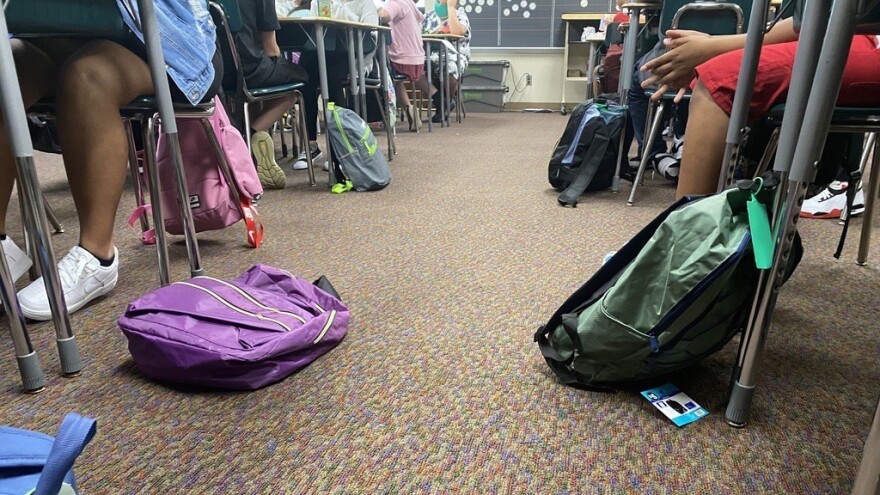Thousands of Indiana students have been sent home to quarantine, often for a week or more, during the past month as a precaution in the ongoing pandemic. It's a response that is again raising concern over student learning outside the classroom. And school districts worry if students are in remote learning for too long, they could lose state funding.
Now, school districts are quickly changing their policies in response to new Indiana Department of Health guidelines, which no longer require quarantines for asymptomatic students and staff if districts implement a mask mandate. While some schools have been quick to adopt the policy, other school district leaders and health experts are on the fence.
Jennifer Smith-Margraf, vice president of the Indiana State Teachers Association said she is glad the state medical professionals made this recommendation.
“We're really glad to see that the State Department of Health is emphasizing the wearing of masks in schools,” Smith-Margraf said. “That's something that we've been advocating for since the beginning of this because we know that students learn best when they're in school. And in order to do that safely, we need to make sure that students and staff are wearing masks and practicing social distancing.”
According to the new guidelines, school districts that require masks can adjust their quarantine policy, allowing kids to stay in school. Now asymptomatic students and staff who are identified as close contacts, don’t have to quarantine. The state defines a close contact as someone who is within six feet of another person who may have COVID-19 for a total of 15 minutes or more.
The state's most recent update on COVID-19 in schools from Aug. 30 shows an additional 5,529 reported student cases – that’s a record for the second week in a row.
Mask, Quarantine Impact on Districts
Beech Grove City Schools in Marion County is roughly 3,000 students. About five to 10 COVID-19 cases were confirmed daily at the start of this academic year, Superintendent Laura Hammack said.
Those positive cases resulted in hundreds of students who were identified as close contacts to be sent home to quarantine. This led to the district switching to a face mask mandate a few weeks after the school year began. Now the district only sees about three to five cases each day.
“We have seen, without question, the number of close contacts go down,” Hammack said.
She said that’s also because most of the COVID-19 infections among students in her district are happening outside of school.
“So we do believe that the mask is working in school, but we just haven't seen a significant impact on the number of cases at this time,” Hammack said.
Beech Grove implemented a new quarantine policy following the adjusted state guidelines.
Now the 78 students who were quarantined on Wednesday and haven’t experienced any symptoms are eligible to return to school. But Hammack said some parents have still chosen to keep their child out of school for their entire quarantine period.
Could Excessive Quarantining Mean Less Funding?
School districts like Beech Grove could potentially avoid state funding challenges by reducing quarantines and implementing a mask mandate.
Schools receive 100 percent of funding for students who learn in-person but get less if a student is learning mostly online or remotely.
Last year, state lawmakers approved a temporary change to maintain full funding levels for schools providing instruction online due to the pandemic. But that expired for the 2021-22 school year.
Now, traditional brick and mortar schools with students who learn online or remotely for 50 percent or more of their instructional days from the beginning of this school year to Sept. 17 will get 85 percent per student.
Superintendent Hammack said some students have been quarantined more than once, which has led to them being absent 50 percent of the time.
“We’re worried about that and concerned about that policy because we think that it negatively impacts doing the right thing during the time of the pandemic,” Hammack said.


